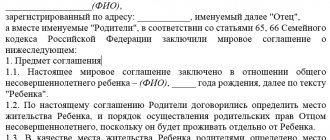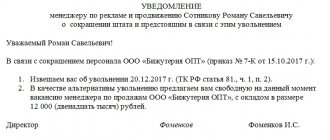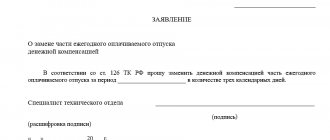According to official data, even before the onset of the coronavirus crisis, shadow employment in Russia accounted for over 20% of the working population, and according to Finance Minister Siluanov, the volume of the gray wage fund is at least 10 trillion rubles annually.
However, it should be noted here that labor activity without registration not only entails huge losses for the state, but also various negative consequences for both the employee and the unscrupulous employer, since it is illegal.
Why are employers in no hurry to register their employees?
The motives of an unscrupulous employer are absolutely banal:
1. Significant savings on “salary” taxes (no salary, no need to pay insurance premiums);
2. You can calmly deprive an employee of vacation or let him go for a few days at his own expense;
3. It is not necessary to pay sick leave;
4. If the employee is no longer needed, it is easy to get rid of him and, again, no severance pay, that is, the employer will not have to pay anything.
At the same time, during communication with a potential employee, an unscrupulous employer uses various manipulations. For example, an employer can argue its position by saying that the employee will not have to lose 13% of personal income tax from his salary every month. This is pure manipulation, for one simple reason: an officially employed employee has the right to paid leave and sick leave, which, based on the total amounts for the year, is almost equivalent to paying personal income tax.
In other words, if we consider the long-term period, the employee practically does not lose money on personal income tax.
Negative consequences of informal employment for a worker
Unfortunately, there are many such consequences. By renouncing his right to official employment, the employee, first of all, becomes completely dependent on the employer, namely:
● Loss of a job without explanation (in this case, the employer’s decision may be completely unexpected for the employee, for example, today he works, but tomorrow he no longer needs to come);
● Refusal to pay (very often unscrupulous employers use unregistered workers for a week or a month, and then fire them without paying a penny);
● There is no opportunity to go on vacation, since there are no guarantees that it will be possible to keep the job, and the employer will not pay vacation pay;
● You can easily lose your job due to illness; not every employer will want to wait for the employee to return; as you understand, you shouldn’t count on paid sick leave in this situation either.
In the current situation with the Covid-19 pandemic, many people have fully felt the consequences of being exposed to the arbitrariness of employers.
Thus, if in relation to officially employed citizens the state, at the very least, controlled the observance of their rights, then unregistered workers were literally left without a means of subsistence and out of sight of the state.
In addition to being dependent on an employer, there are other negative consequences. Work without registration does not form a length of service, and an unscrupulous employer does not make contributions to the pension fund and health insurance fund.
It means that:
● The employee may in the future lose his pension or a significant part of it;
● The employee will have to be content with the amount of social health insurance;
● If you lose your job when applying to the employment exchange, you can only count on a minimum unemployment benefit of 1,500 rubles, as a person who has never worked.
What threatens an employer who does not register an employee?
In fact, as practice shows, the benefits and savings of the employer in this situation are not justified by high legal and other risks. The shadow economy is becoming a thing of the past. In recent years, state control over business has increased significantly. The gray turnover of remuneration is becoming more and more transparent, and the employer’s responsibility is only growing.
At the same time, for example, inspections by labor inspectorates since 2018 can be carried out without prior notification of an upcoming inspection by the State Labor Inspectorate.
For violation of labor laws, there are currently many penalties, and in some cases, employers may be held criminally liable.
So, let's look at what exactly threatens the employer if regulatory authorities reveal facts of unofficial employment.
The procedure for registering labor relations
The basic principles of hiring employees are enshrined in the Labor Code of the Russian Federation. The Code regulates the conclusion and termination of contracts, the provision of leaves, guarantees, and compensation. Its norms are detailed and clarified by acts of the Russian Ministry of Labor, as well as documents of other federal departments. Judicial practice is of great importance in regulating employment.
Hiring an employee includes the following stages:
| Stage | a brief description of |
| Check (interview) | Employment contracts are concluded with citizens of the Russian Federation who have reached the age of 16. Teenagers who have completed general education can get a job with easy conditions from the age of 15. If there is written permission and approval from the guardianship authorities, the agreement is concluded from the age of 14. At an earlier age, you can only work in cinema, theaters, circuses, and concert productions. Ensuring the proper moral and physical development of the child becomes a mandatory requirement. The conclusion of the agreement is coordinated with legal representatives and guardianship authorities (Article 63 of the Labor Code of the Russian Federation). Foreigners or stateless persons can work in Russia if they have the appropriate documents. In most cases, migrants need to obtain a special patent. An agreement with them is concluded subject to legal presence in the country (Articles 327.1–327.2 of the Labor Code of the Russian Federation). During the interview, the entrepreneur must check the candidate's compliance with job requirements. Thus, government resolution No. 162 of February 25, 2000 contains a list of professions prohibited for women. The employer must also take into account the restrictions set for disabled people, single mothers and other social groups. Businessmen should not forget about educational criteria, neglect checking for criminal records, bans or disqualifications |
| Issue of personnel order | The appointment of any employee to a position begins with an order from the head of the company. Entrepreneurs sign the order personally. The form was approved by Decree of the State Statistics Committee of the Russian Federation No. 1 of 01/05/04. Since 2013, the form has acquired a recommendatory nature. Employers have the right to independently develop such documents |
| Conclusion of an agreement | A single form of agreement has not been approved. Documents are drawn up by employers taking into account the provisions of Chapter 10 of the Labor Code of the Russian Federation. Unofficial employment does not deprive the employee of legal protection. Relationships are considered to have arisen from the moment a person is admitted to perform official duties (Article 16 of the Labor Code of the Russian Federation, Resolution of the Supreme Court of the Russian Federation No. 2 of March 17, 2004) |
| Entry in the work book | Entrepreneurs are required to adhere to the instructions of the Ministry of Labor of Russia No. 69 dated 10.10.03. The employer records the fact of receiving a work book in a special register |
A free information service has been launched to help businessmen. The resource contains up-to-date instructions for HR specialists.
General control is assigned to Art. 353 of the Labor Code of the Russian Federation to the state labor inspectorate (Rostrud). Employees of this body conduct scheduled and unscheduled inspections, consider citizen complaints, and also participate in the investigation of accidents. If unregistered individual entrepreneurs are identified, they face an administrative fine. If we are talking about a foreign citizen or stateless person, the information is transferred to law enforcement agencies. Migration control is carried out by territorial internal affairs bodies (joint order of the FMS and the Ministry of Internal Affairs of the Russian Federation No. 367/807 dated July 31, 2015).
The prosecutor’s office can also be involved in resolving the dispute (Article 1 of Law No. 2202-1 of January 17, 1992). The supervisory agency is obliged to defend the interests of citizens in cases of abuse by employers. If the conflict cannot be resolved, the case is referred to a court of general jurisdiction. Evidence of labor relations includes witness statements, any records related to the performance of official duties, documents and other materials.
Personal income tax
Tax officials have promised to collect the full amount of unpaid personal income tax from “salaries in envelopes” from 2021, not from the employee’s salary, but at the expense of the employer.
Thus, offended workers, who were previously afraid to complain about an unscrupulous employer for fear that they would have to pay the entire personal income tax, will now be active, turning to the court, prosecutors and labor inspectors.
They may do this not only out of a desire for revenge, but also in the hope that they will be able to restore their seniority, replenish their pension points, and at the same time recover vacation and sick pay from the employer.
Refusal to maintain tax records
An individual entrepreneur is not required to keep accounting records, but must record income, expenses and taxable items. If you are a brave entrepreneur, you can argue with the tax authorities when they demand from you, for example, a book of income and expenses. You will not be able to get moral satisfaction and win, but you will receive a fine.
This fine applies to gross violations. And even if the lack of accounting did not lead to a decrease in the tax base, the fine will be 10,000 rubles for a violation in one and 30,000 rubles for a violation in several periods (Article 120 of the Tax Code of the Russian Federation).
Keep records of exports and imports in the Kontur.Accounting web service. Simple accounting, payroll and reporting in one service
Administrative responsibility
Parts 4 and 5 of Article 5.27 of the Code of Administrative Offenses of the Russian Federation provide for a system of imposing penalties on employers for evading the execution of an employment contract.
So, if the offense was committed for the first time, then
● The guilty official will pay from ten to twenty thousand rubles;
● The individual entrepreneur will pay from five to ten thousand rubles;
● The legal entity will pay from fifty thousand to one hundred thousand rubles.
The amount within the specified penalties will be determined by the inspector, taking into account all the circumstances of the offense.
If the offense is repeated, the fines will increase:
● For individual entrepreneurs – from thirty to forty thousand rubles;
● For legal entities – from one hundred to two hundred thousand rubles. In addition, officials may be subject to disqualification for a period of one to three years.
Fine for violating the rules for attracting foreigners to work at retail facilities
An employer who attracts foreigners to work at retail facilities is obliged to comply with certain rules provided for by federal laws and other regulations (Article 13.2-13.3 of Law No. 115-FZ, Article 15 of Law dated December 30, 2006 No. 271-FZ “On Retail Markets” …" and etc.).
Punishment under Part 1 of Art. 18.16 of the Code of Administrative Offenses of the Russian Federation may follow if an individual entrepreneur or company managing a retail facility:
- provided a trading place on the territory of a retail facility, production, warehouse or other premises to a foreign citizen who was illegally recruited to work;
- issued a permit to a foreign citizen illegally carrying out trading activities;
- allowed a foreigner illegally carrying out trading activities to carry out its activities.
According to Part 2 of Art. 18.16 of the Code of Administrative Offenses of the Russian Federation, the same persons may be punished for providing retail space on the territory of a retail facility or other premises to other companies or individual entrepreneurs who:
- there is no permission to use the labor of foreigners, but they actually attract them to work;
- foreigners who do not have a work permit or patent work, if these documents are required by law.
Punishments for violations under Part 1 and Part 2 of Art. 18.16 of the Code of Administrative Offenses of the Russian Federation are the same in terms of the amount of fines and the duration of suspension of activities.
For these violations committed in Moscow or St. Petersburg or in the Moscow or Leningrad region, fines of more significant sizes are provided:
- for officials from 45,000 to 70,000 rubles,
- per company - from 450,000 to 1,000,000 rubles.
Criminal liability
In cases where the volume of evasion from paying “salary taxes” (personal income tax and insurance contributions to extra-budgetary funds) over the past three years reaches a large or especially large amount, the employer may be brought to criminal liability simultaneously under several articles of the Criminal Code:
● 199 CC – evasion of taxes and insurance premiums;
● 199.1 of the Criminal Code – failure to fulfill the duties of a tax agent (we are talking about non-payment of personal income tax from an employee’s salary);
● 199.2 of the Criminal Code – concealment of funds or property of an organization from which taxes and insurance contributions should be collected;
● 199.4 of the Criminal Code – evasion of the employer from paying “accident contributions” (we are talking about insurance of accidents, industrial injuries and the prevention of occupational diseases).
● 159 of the Criminal Code - Fraud, which, as a rule, always goes in conjunction with the “tax articles” of the code itself.
Please note that large and especially large amounts, depending on the specific criminal offense, may be different amounts, directly indicated in the notes to the relevant articles of the Criminal Code.
What are the dangers of fictitious contracts and outstaffing schemes?
Extremely high insurance premium rates are forcing employers to look for ways to optimize. Many entrepreneurs try to disguise labor relations with civil contracts. However, such schemes are well known to the tax authorities. Attempts to reduce contributions to extra-budgetary funds lead to lengthy proceedings.
The Supreme Court of the Russian Federation has repeatedly spoken about the differences between labor and economic relations. Thus, a strict approach was demonstrated in determination No. 34-KG17-10 dated 02/05/18.
| Civil agreement | Employment contract |
| The subject is a one-time service or work | The agreement presupposes the systematic performance of certain functions by the employee |
| The result is key. The customer pays for it | The focus is on the process and rewards are paid regardless of the outcome. The employer can change the payment only in terms of bonuses or other incentives |
| The performer independently plans his work, draws up a schedule and chooses methods for solving the problem | The employee is subject to internal labor regulations. His actions are regulated by the job description and other local acts of the employer |
| The risks fall on the performer. For damage caused to the customer, he is liable in full (actual damage, lost profits) | The employer is responsible for the actions of personnel. In case of damage, liability is limited to actual direct loss. The recovery should not go beyond the average monthly earnings (Articles 238, 241 of the Labor Code of the Russian Federation) |
The highest authority provided detailed explanations in Resolution No. 15 of May 29, 2018. After the publication of the official position of the RF Armed Forces, it became almost impossible to disguise employment contracts as civil agreements. The risk of retraining turned out to be too high. Tax authorities now only need one or two signs to classify a relationship as labor. As a result, even for real transactions, additional personal income tax, insurance premiums, penalties and fines are charged. Businesses have to prove their case in the courts.
Classic example:
Petrov Sidor Egorovich gets a job as a carpenter with a salary of 20 thousand rubles. An entrepreneur wants to save on contributions to the budget and funds. He enters into a civil contract with the employee. Payment under the agreement includes the following components (in rubles):
- 10 thousand – remuneration for performing work;
- 10 thousand – compensation for the contractor’s costs.
According to Art. 226 of the Tax Code of the Russian Federation, an entrepreneur will be recognized as a tax agent for personal income tax. However, deductions must be made only from direct remuneration of the citizen. An individual in accordance with Art. 221 of the Tax Code of the Russian Federation can take advantage of a deduction for the entire amount of expenses. The compensation payment will not be subject to personal income tax provided that documents are provided confirming the reality and validity of the expenses (clarifications of the Ministry of Finance of the Russian Federation No. 03-04-05/35131 dated 06.16.16 and No. 03-04-06/29397 dated 05.23.16).
Insurance fees will also be reduced. They will need to be accrued only for remuneration. Compensation is not included in the taxable base (Article 422 of the Tax Code of the Russian Federation, explanations of the Ministry of Finance of the Russian Federation No. 03-15-06/53442 dated 08.21.17).
If the agreement with Petrov is recognized as an employment agreement, the entrepreneur will have to pay additional insurance premiums. In addition, the businessman will need to answer for incomplete withholding of personal income tax.
The only thing that remains relatively safe in 2021 is outsourcing - a classic civil contract for the provision of a one-time or package service. In this case, specialists are not integrated into the customer’s staff; they pay their own taxes and insurance fees. An outsourcing agreement can be concluded by an entrepreneur or a service center. This scheme has nothing in common with borrowed labor. Cooperation is based on the “task-result” principle. The contractor organizes and maintains the workplace and bears other expenses. He receives remuneration taking into account the volume of services provided after signing the acceptance certificate.
Example:
Professional lawyer Ivanov enters into an outsourcing agreement with a manufacturing company. The specialist registers an individual entrepreneur and switches to the simplified tax system with the object “income”. In the agreement, the parties establish a subscription fee of 20 thousand rubles per month. Included in the price:
- drafting up to 10 business contracts;
- preparation of up to 10 claims and responses;
- providing up to 5 oral and up to 5 written consultations on legal issues;
- conducting 1 case in a court of general jurisdiction;
- representation in 1 proceedings in state arbitration.
Ivanov provides the service remotely using modern means of communication. At the end of the month, the lawyer draws up an act of acceptance and transfer of services and issues an invoice. If the company's needs go beyond the approved list, the tariff may change upward. In other cases, the customer pays only a subscription fee. Ivanov calculates taxes and insurance premiums independently.
It will be very difficult to reclassify such an agreement into an employment agreement. But the regulatory authorities are successfully fighting the fictitious business scheme. The essence of optimization comes down to registering workers as individual entrepreneurs. Citizens are offered to choose the tax regime with the least burden and pay fixed insurance premiums on their own. Next, an agreement is concluded with them for the provision of services or performance of work. In fact, pseudo-businessmen continue to perform their job duties. The Supreme Court of Russia declared this practice illegal (case A58-547/2016). The highest authority noted that the “entrepreneurs” do not have any other business partners. Their only source of income is the employer company. Such relationships are labor relations, since they do not meet the criteria for free commercial activity.
Until 2021, businesses widely used another optimization tool – outstaffing. Employers entered into agreements with intermediary organizations to attract cheap labor (Chapter 53.1 of the Labor Code of the Russian Federation).
Here's an example:
A Moscow entrepreneur plans to expand production. To do this, he needs to hire an additional 100 auxiliary workers. The minimum wage under an employment contract with the condition of an 8-hour working day and a 5-day week in the capital is 18,781 rubles.
The businessman does not want to employ employees. He contacts a specialized agency in the Perm region and enters into an outstaffing agreement. The role of the employer is an intermediary who is guided by the legislation of his region. Here, a special minimum wage has not been approved and the federal rate is used - 11,280 rubles. As a result, insurance premiums on wages will be reduced. Personal income tax contributions to the budget will also decrease.
Law 116-FZ dated 05.05.14 amended Article 341.1 of the Labor Code of the Russian Federation. A clause has appeared in the norm according to which working conditions for full-time employees and “agency personnel” should not differ. As a result, optimization schemes lost their attractiveness. It is no longer possible to “play” on the difference in minimum wages.
Personnel scammers also lost the opportunity to implement their schemes. Unscrupulous businessmen used outstaffing to deceive employees. Recruitment was entrusted to a one-day company with a nominal director. When the debt on insurance premiums, personal income tax and labor payments reached a critical level, the company went bankrupt. Finding the true owners of such agencies was extremely difficult. The problem was solved through an accreditation system and the establishment of subsidiary liability for labor obligations (Article 341.5 of the Labor Code of the Russian Federation). In case of insolvency of the intermediary, payments are made by the party receiving the personnel.
In each of the three cases, the documentation will be special. The regulations do not contain uniform instructions. The rules are determined by the practice and content of the transaction.
| Civil contract with an individual | Outstaffing | Outsourcing |
| Contract, technical specifications approved by the customer, documents confirming the contractor’s/performer’s expenses, act of acceptance of work or services | Agreement, list of employees seconded to the enterprise, time sheet, outstaffer’s order on sending people to the site and appointing an authorized representative (foreman, foreman, manager), agreement on the division of responsibility for labor protection, certificate of services rendered | An agreement indicating the subscription fee or service tariffs, an acceptance certificate for services (works) |
Other employer risks
One should not discount the fact that an employee without registration can also greatly “annoy” an unscrupulous employer. Since he is not officially employed, he may also not show up for work any day, sell the company’s trade secrets, leak the customer base, etc. and so on.
At the same time, it will no longer be possible to hold such an employee accountable. Thus, it is obvious that the legal consequences of refusing official employment can be very painful for both the employer and the employee. Every decision of the employer and employee related to employment must be balanced and take into account all the advantages and disadvantages.
Failure to submit documents on counter-inspection
A tax audit is a terrible nightmare for hardened businessmen and young entrepreneurs. But there is absolutely no need to be afraid of a counter inspection - they are not checking you, but your counterparty. Therefore, it is better to provide the tax authorities with all the documents and information that they require.
Important! You must submit only those documents and information that are related to the counterparty.
If you do not want to provide tax assistance, take a look at Article 126 of the Tax Code of the Russian Federation. For each document not submitted - a fine of 200 rubles, for information - 10,000 rubles.










